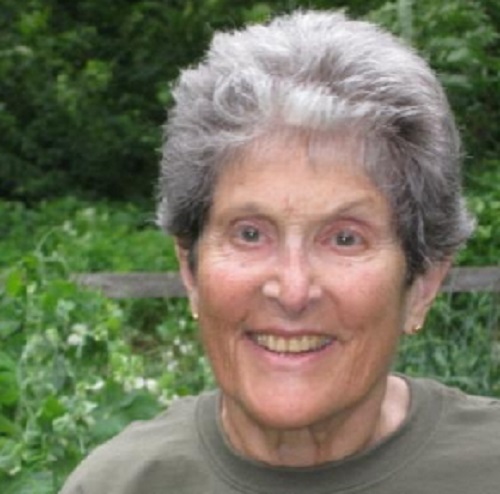
Good morning, everyone. In keeping with our policy of re-visiting poets who were especially popular with our readers, we’ve chosen to say hello again to the late Maxine Kumin, who last appeared here in 2014.
Here, exactly as she appeared then, is the widely adored poet, Maxine Kumin.
— Irene Willis
Poetry Editor
POETRY MONDAY: May 5, 2014
Maxine Kumin: A Postlude
Those of us still mourning the loss of former U.S. Poet Laureate Maxine Kumin, who died on February 6 of this year at 88, have a welcome gift, knowing that she didn’t stop. Her new book, And Short the Season (New York: W.W. Norton & Co., 2014) is available now, and her voice is as strong as it has always been. Sharp-eyed, keen-witted and ironic as ever, she shies away from nothing in this collection, dedicated to her daughter Judith, whom we feel we have watched grow in some earlier poems. Maxine loved the earth, dogs, animals, her husband Victor, her old farm home in New Hampshire. They are all here, along With Nietschze, Guantanomo, Pearl Harbor, Chelsea Manning, Gauguin, Van Gogh, Simone de Beauvoir, Betty Friedan, Virginia Woolf, Pushkin, Dostoevsky – and whoever and whatever else her scholarly, socially-conscious and all-encompassing mind took in and talked about, eclectically, in beautifully crafted, musical and largely formal poems, including a group of what she calls “Sonnets, Uncorseted” that lead us from Margaret Cavendish, childless Duchess of Newcastle in the 1600’s, “ … an aristocrat who advocates/ –words worn across centuries – for women’s rights” and into the struggles of women poets for whom the highest praise in the 1950’s and 60’s was “you write like a man.” The male visiting poets she met in those days:
When asked what woman poet they read, with one
voice they declaimed, Emily Dickinson.
Saintly Emily, safely dead, modern
women poets were dismissed as immature,
their poems pink with the glisten of female organs.
The virus of their disdain hung in the air
but women were now infected with ambition.
That was the end of Uncorseted Sonnet number 8, and in number 9 she gives it to us full throttle, telling how her generation of women:
… took courage from Carolyn Kizer’s knife-blade
Pro Femina: I will speak about women/
of letters for I’m in the racket, urging,
Stand up and be hated, and swear not to sleep with editors.
Go out and buy this book, everyone. – and consider giving it to your mother on Sunday, May ll. But first, read it yourself, and save the last poem in the book, “Allow Me,” for a time when you’re alone and quiet.
– Irene Willis
Poetry Editor
